-Practice the English Copy-Writing Method Every Day ⑤ 2013年2月 志村英盛
関連サイト:英語脳創りで情報力・発信力を高める-毎日、量聴、量作文、量音読
041
Lower House election set for Dec. 16
November 14, 2012
The government decided on Nov. 14 to hold a Lower House election on Dec. 16,
after Prime Minister Yoshihiko Noda said in the Diet that the chamber could be dissolved
as early as Nov. 16.
042
Hu Jintao retire from all posts and
end rule by retired leaders
by KENJI MINEMURA
from The Asahi Shimbun Nov.14 , 2012
In a move to end the bitter internal struggle around the selection
of the next top leaders of the Chinese Communist Party,
Hu Jintao will step down from all posts he now holds
after the 18th National Congress concludes on Nov. 14.
According to several party sources, the decision to approve
Hu's retirement as general secretary of the party, national
president and chairman of the Central Military Commission was
made at a Nov. 11 internal meeting of high-ranking party officials.
Another decision made at that meeting was a systematic ban
on intervention in the political sector by retired leaders,
including the long-retired Jiang Zemin, 86, who preceded
Hu, 69, in all three posts.
The decisions were approved at an internal meeting of
the National Congress held on Nov. 11.
The move is seen as an attempt to end political rule
by party elders by proceeding with the implementation of
stricter party personnel rules.
In the past, Deng Xiaoping and Jiang maintained influence
over the political sector by remaining in the post of the Central
Military Commission chairman even after stepping down
from top party posts.
Party sources said that Hu expressed his intention to retire
from all posts at the internal meeting. While Xi Jinping,
who is expected to succeed Hu in the three posts, asked
that he remain in some positions, Hu said he would fully retire
if two conditions were satisfied.
The requirements were that all high-ranking party officials
would not intervene in politics once they retired and
that no exceptions would be allowed for personnel matters,
including the the Central Military Commission chairman's post.
The internal meeting in the end agreed to go along with Hu's offer.
Party sources were in agreement that a major aim of the move was
to eliminate the influence of Jiang, who continued to influence
political decisions even after retiring from all of his top positions.
Internal party regulations have established a retirement age
for general secretary, but the post of CMC chairman is not covered
by those regulations.
After stepping down as general secretary in 2002, Jiang remained
as the Central Military Commission chairman for about two years
before eventually handing the job over to Hu.
Even after his retirement, Jiang created a new internal regulation
that said he would receive reports on important party matters.
That allowed him to have a say in decisions on personnel matters
as well as important policy measures.
Hu had called for increased rule by law. Through his complete
retirement from all posts, Hu is seeking to systematize personnel
matters to prevent Jiang and other retired officials from further
intervening in the political sector.
According to a party source, the move will mean that Jiang will
have to vacate his office in the Zhongnanhai compound in central
Beijing where the offices of major party organs are located.
The internal regulation to report all important party matters
to Jiang will also be eliminated.
Preparations for the National Congress were hampered by the fierce
factional struggle between the camps led by Hu and Jiang.
Rather than rule of law, decisions were made based on the relationship
others had with Hu and Jiang.
That struggle is a major reason no decision had been made
for the top leadership corps even as the National Congress began
on Nov. 8.
By playing his last major political card, Hu is hoping
to resolve the matter of who is included in the Politburo Standing
Committee.
With the move, Hu will step down as national president and turn
that post over to Xi at the National People's Congress
to be held next spring.
The End
043

The Samurai Revolution
from A Modern History of Japan
by Andrew Gordon
The "restoration" of the young Emperor Meiji in 1867-68 was little more
than a coup d'etat. A relatively small band of insurgents had toppled
the Tokugawa bakufu. They stated their intent to restore direct imperial
rule, but this was not likely to occur. Strong emperors who exercised
power directly had been exceptional in Japanese history.
Political contenders at the time feared that the rebels from Satsuma
and Choshu would simply form a new bakufu and use the name of the emperor
to rule from a narrow base of power.
After all, beyond the political upheaval in Kyoto and Edo, little had
changed. The islands of Japan were still divided into nearly two hundred
relatively autonomous domains. Each maintained its own treasury and army.
The samurai were still receiving stipends, which they viewed as a hereditary
birthright. The daily life of the countryside and cities had gone through
some tumult. But the scattered peasant rebellions were short-lived.
However, if we compare this situation of 1868 in any aspect -political,
economic, social, cultural -to that of just a decade later, the changes are
breathtaking and fully merit the term revolution. Of course, no society
ever totally severs itself from its past, and Japan was no exception.
But the range and depth of change were astonishing to observers at the time.
They remain so when looking back after 150 years. One of the most insightful
contemporaneous observers was a British scholar named Basil Hall Chamberlain.
He lived in Japan for over thirty years beginning in 1873. In 1891, he wrote:
To have lived through the transition stage of modern Japan makes a man
feel preternaturally old; for here he is in modern times, with the air full
of talk about bicycles and bacilli and "spheres of influence," and yet he can
himself distinctly remember the Middle Ages. The dear old Samurai who first
initiated the present writer into the mysteries of the Japanese language,
wore a queue and two swords. This relic of feudalism now sleeps in Nirvana.
His modern successor, fairly fluent in English, and dressed in a serviceable
suit of dittos, might almost be European, save for a certain obliqueness of
the eyes and scantiness of beard. Old things pass away between a night and
a morning.'
Although Chamberlain here stresses how unusually swiftly the events of this
"transition stage" unfolded, his writing also suggests that Japan's transition
was part of a broader global shift. And indeed, the revolution that began
in the 1860s was a Japanese variation on a global theme of modern revolution.
Changes that took place in societies around the world in the nineteenth and
twentieth centuries also unfolded in Japan.
Although sharing much with a global history of modernizing societies,
the Japanese revolution did take place through a process that differed
from the revolutions in Europe of the late eighteenth and the nineteenth
centuries. In Europe, members of newly powerful classes, especially
the urban bourgeoisie, challenged and sometimes overturned the privileges
of long-entrenched aristocrats.
By contrast, in Japan of the Meiji era it was members of the elite of
the old regime, the samurai, who spearheaded the attack on the old order.
Their role has led many historians to describe Japan in the nineteenth
century as undergoing a "revolution from above" or an "aristocratic
revolution. "
In the twentieth century, other modernizing revolutions also unfolded
through a process in which members of elite groups undermined their own
well-established positions while they restructured the political order.
The Japanese mode of modern revolution was not unique. Rather, it contrasted
with earlier Western revolutions and resembled some later ones. This sort
of elite-led revolution took place in Japan because of particular features
of the samurai class, both weaknesses and strengths.
On the negative side, change was possible because the samurai were not
a securely landed elite. They were essentially salaried employees of their
lords. Although this status was hereditary, it was less rooted in property
than a European-style feudal estate, a Chinese gentry holding, or a Korean
aristocratic status (yangban). The samurai had less to lose than elites
in such societies. They were hard-pressed to protect their privilege
as hereditary government employees once the new rulers decided to revoke it.
Some did protest the actions of their former comrades bitterly, but others
were either unable or unwilling to resist.
On the positive side, many of the activists in the restoration movement
had already developed a commitment to serving and building a realm that went
beyond the narrow confines of a single domain. This emerging national
consciousness offered a compelling reason for many to accept programs of
farreaching change.
The End
関連サイト:松平容保(まつだいら かたもり)と会津藩の悲劇
044

Lili Marleen
Song by Marlene Dietrich
Outside the barracks by the corner light
I'll always stand and wait for you at night
We will create a world for two
I'll wait for you the whole night through
For you, Lili Marleen
For you, Lili Marleen
Bugler tonight,
don't play the Call To Arms
I want another evening with her charms
Then we will say goodbye and part
I'll always keep you in my heart
With me, Lili Marleen
With me, Lili Marleen
Give me a rose
To show how much you care
Tied to the stem, a lock of golden hair
Surely tomorrow you'll feel blue
But then will come a love that's new
For you, Lili Marleen
For you, Lili Marleen
When we are marching
in the mud and cold
And when my pack seems
more than I can hold
My love for you renews my might
I'm warm again, my pack is light
It's you, Lili Marleen
It's you, Lili Marleen
My love for you renews my might
I'm warm again, my pack is light
It's you, Lili Marleen
It's you, Lili Marleen
You Tube:Lili Marlene Marlene Dietrich (English Version)
ちなみにドイツ語版は英語版と趣が違います:WW2 Lili Marleen (1939 Version)
045
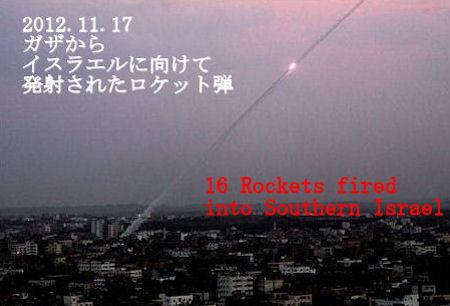 ハマスのイスラエル攻撃
ハマスのイスラエル攻撃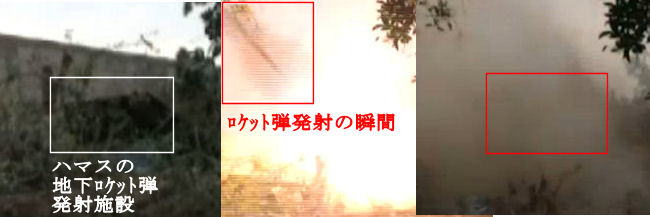
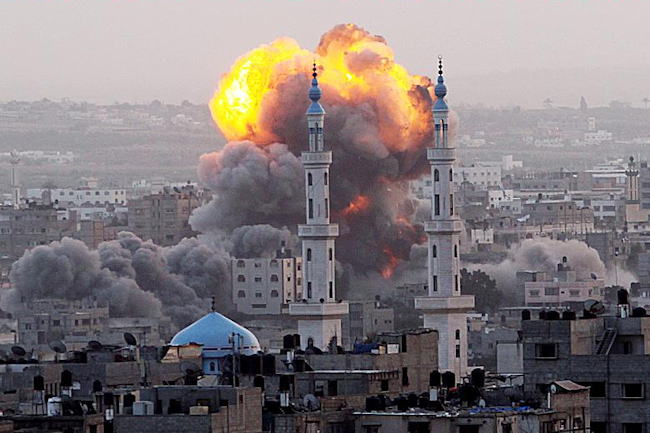
イスラエル軍のガザ地区攻撃で炎上する市街地

Palestinian civilian toll climbs in Gaza
Nov.19, 2012
The Palestinian civilian death toll mounted Monday as Israeli aircraft
struck densely populated areas in the Gaza Strip in a campaign
to quell militant rocket fire menacing nearly half of Israel's population.
An overnight airstrike on two houses belonging to an extended
clan in Gaza City killed two children and two adults,
and injured 42 people, said Gaza heath official Ashraf al-Kidra.
Shortly after, Israeli aircraft bombarded the remains of
the former national security compound in Gaza City.
Flying shrapnel killed one child and wounded others living
nearby, al-Kidra said. Five farmers were killed
in two separate strikes, al-Kidra said, including three
who had been identified earlier by Hamas security officials
as Islamic Jihad fighters.
Civilian casualties began to shoot up on Sunday,
after Israel said it was stepping up attacks
on the homes of suspected Hamas activists.
After that warning, an Israeli missile flatted
a two-story house in a residential area of Gaza City,
killing at least 11 civilians, most of them women and children.
It remained unclear who the target of that missile attack was.
However, the new tactic ushered in a new and risky phase
of the operation, given the likelihood of civilian casualties
in the crowded territory of 1.6 million Palestinians.
The rising civilian toll was also likely to intensify pressure
on Israel to end the fighting.
Hundreds of civilian casualties in an Israeli offensive
in Gaza four years ago led to fierce international
condemnation of Israel.
In all, 87 Palestinians, including 50 civilians, have been
killed in the six-day onslaught and 720 have been wounded.
Three Israeli civilians have died from Palestinian rocket fire
and dozens have been wounded. An Israeli rocket-defense system
has intercepted hundreds of rockets bound for populated areas.
Monday's air assault in Gaza City reduced two houses to rubble
on either side of a street where residents stepped over piles
of cinderblocks and twisted metal. Relatives said Ahed Kitati,
38, had rushed out after a warning missile was fired to try
to hustle people to safety. But he was fatally struck
by a falling cinderblock, leaving behind a pregnant wife,
five young daughters and a son, they said.
One of his daughters, Aya Kitati, clutched a black jacket,
saying she was freezing, even though the weather was mild.
"We were sleeping, and then we heard the sound of the bombs,"
she said in a whisper, then broke down sobbing.
Ahed's brother, Jawad Kitati, said he plucked the lifeless body
of a 2-year-old relative from the street and carried him
to an ambulance. Blood stains smeared his jacket sleeve.
Another clan member, Haitham Abu Zour, 24, woke up to the sound
of the warning strike and hid in a stairwell. He emerged
to find his wife dead and his two infant children buried
under the debris, but safe.Clan elder Mohammed Azzam, 61,
denied that anyone in his family had any connections to Hamas.
"The Jews are liars," he said. "No matter how much they
pressure our people, we will not withdraw our support for Hamas."
Israel launched the current offensive last Wednesday
after months of intensifying rocket fire from the Gaza Strip,
which continued despite the strikes. Overnight, the military said,
aircraft targeted about 80 militant sites, including underground
rocket-launching sites, smuggling tunnels and training bases,
as well as command posts and weapons storage facilities located
in buildings owned by militant commanders, the military said
in a release. Aircraft and gunboats joined forces to attack
Hamas police headquarters, and Palestinian rocket squads
were struck as they prepared to fire, the release said.
In all, 1,350 targets in the Gaza Strip have been struck
since the Israeli operation began on Wednesday. However,
military activity over the past two nights has dropped off
as targets change and international efforts to wrest
a cease-fire plod ahead.
Israel and Hamas have put forth widely divergent conditions
for a truce. But failure to end the fighting threatens
to touch off an Israeli ground invasion, for which thousands
of soldiers, backed by tanks and armored vehicles, have already
been mobilized and dispatched to Gaza's border.
President Barack Obama said he was in touch with players
across the region in hopes of halting the fighting.
While defending Israel's right to defend itself against
the rocket fire, he also warned of the risks the Jewish state
would take if it were to expand its air assault into a ground war.
"If we see a further escalation of the situation in Gaza,
the likelihood of us getting back on any kind of peace track
that leads to a two-state solution is going to be pushed off way
into the future," Obama said.
The End
046


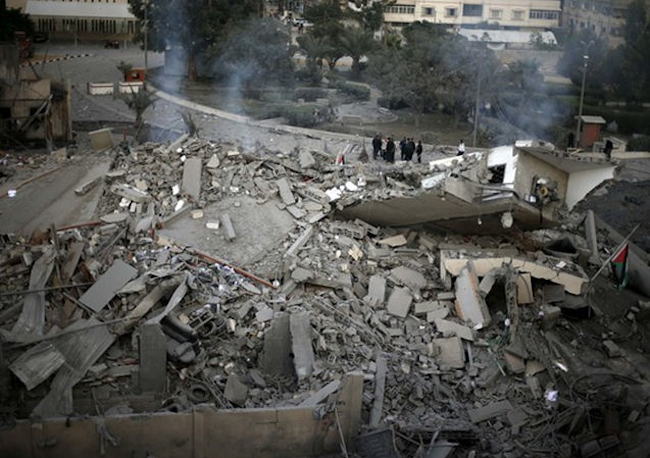
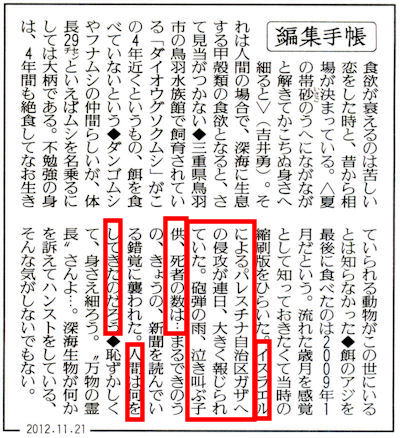
The Israeli attacks on Gaza
January 5, 2009
On December 27, 2008, Israel began a series of air attacks on Gaza
in response to rocket attacks that Hamas restarted after the expiry of
a six-month ceasefire just over a week earlier.
After eight days of attacks during which more than 400 Palestinians
and four Israelis were killed, Israeli tanks entered Gaza on January 4, 2009.
On January 18, after Hamas and Israel agreed a ceasefire, Israeli troops
began to withdraw. More than 1,300 Palestinians and 13 Israelis had been killed.
The End
047
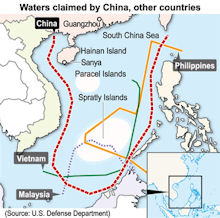
Philippines, Vietnam protest map
in China passport
Nov.23, 2012
A map that China has incorporated into its passports has drawn
diplomatic fury because it appears to claim the entire South China
Sea, ignoring competing claims from the Philippines, Vietnam and
other countries.
Philippine Foreign Secretary Albert del Rosario told reporters
in Manila that he sent a note to the Chinese Embassy that his
country “strongly protests” Beijing's inclusion of an image
showing China's claimed maritime borders in its new passport.
Del Rosario says China's claims include an area that is
“clearly part of the Philippines' territory and maritime domain.”
The Vietnamese government said it had also sent a diplomatic
note to the Chinese embassy in Hanoi, demanding that Beijing
remove the “erroneous content” printed in the passport.
In Beijing, the Foreign Ministry said the new passport was
issued based on international standards.
“The outline map of China on the passport is not directed
against any particular country,” Foreign Ministry spokeswoman
Hua Chunying said Nov. 22.
China maintains it has ancient claims to all of the South China
Sea, despite much of it being within the exclusive economic zones
of Southeast Asian neighbors. The potentially oil- and gas-rich
South China Sea islands and waters also are claimed by
the Philippines, Vietnam, Taiwan, Brunei and Malaysia.
There are concerns that the disputes could escalate into
violence. China and the Philippines had a tense maritime standoff
at a shoal west of the main Philippine island of Luzon early this year.
The United States, which has said it takes no sides
in the territorial spats but that it considers ensuring safe
maritime traffic in the waters to be in its national interest,
has backed a call for a “code of conduct” to prevent clashes
in the disputed territories. But it remains unclear if and
when China will sit down with rival claimants to draft
such a legally binding nonaggression pact.
The Philippines, Brunei, Malaysia and Vietnam are scheduled
to meet Dec. 12 to discuss claims in the South China Sea and
the role of China.
The End
048
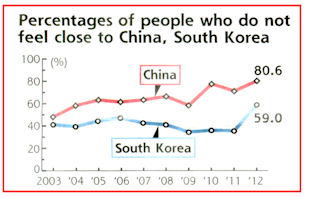
Record 80%
don't feel close to China,
poll says
from THE DAILY YOMIURI Nov.26,2012
A record 80.6 percent people "do not feel close
to China," according to a public opinion survey conducted
by the Cabinet Office.
The figure, which is up by 9.2 percentage points
from the 2011 survey, is the highest since the Cabinet Office
started taking opinion polls on diplomacy in 1975.
The percentage of people who do not feel close to South
Korea also rose sharply, to 59 percent, up 23.7 percentage
points from the previous survey.
A Foreign Ministry official said, "Confrontations
between Japan and these countries over the Senkaku Islands,
Okinawa Prefecture, and the Takeshima islands, Shimane
Prefecture, led to the deterioration of public sentiment."
The survey was conducted between Sept. 27 and Oct. 7
and covered 3,000 adults nationwide. Of them, 1,838 people,
or 61.3 percent, gave valid responses. The results of
the survey were announced Saturday.
Regarding Japan-China relations, a record 92.8 percent
of the respondents said they are "not good," up 16.5
percentage points. Asked about relations between Japan and
South Korea, a record 78.8 percent said the same, up 42.8
points.
Public sentiment about relations with China likely was
influenced by the anti-Japan demonstrations that erupted
in the country after Japan nationalized some of the Senkaku
Islands in September. During the riots, several Japanese
companies were set on fire or looted.
Though relations with South Korea had been good thanks
to increased interest in the country among Japanese,
South Korean President Lee Myung Bak's visit to the Takeshima
islands in August chilled the relationship.
Only 4.8 percent of the respondents said Japan-China
relations "are good," down 14 points, while 18.4 percent
said the same about Japan-South Korea relations, down
40.1 points. Both figures were record lows.
The End
049
Japan should prepare for
Worst-case Magnitude-10 Earthquake
By SHIGEKO SEGAWA/ Staff Writer
from AsahiShimbun,November 23, 2012
Japan should be prepared for the possibility of a magnitude-10
earthquake, although the chances of a temblor that size are slim,
a seismologist said.
“The chances of a magnitude-10 occurring are very low,”
professor Toru Matsuzawa of Tohoku University reported
at a Nov. 21 meeting of the Coordinating Committee for Earthquake
Prediction, Japan. “But if we think of what could happen,
with the maximum in mind, we can make a swift response.”
The world’s largest recorded earthquake was the magnitude-9.5
Valdivia earthquake off the coast of Chile in 1960, rupturing
a 1,000-kilometer fault. A magnitude-10 earthquake would be
30 times more powerful than the magnitude-9.0 Great East Japan
Earthquake of 2011.
Matsuzawa said a magnitude-10 quake is possible in theory
if a large fault slips.If a temblor of such a scale should strike,
the underground rupture would continue for 20 minutes to an hour,
meaning tsunami could hit coasts before the shaking subsides.
If a 3,000-kilometer stretch from the Japan Trench to the Kuril-
Kamchatka Trench along the Pacific Ring of Fire has a slip of
60 meters, that would constitute a magnitude-10 earthquake, he said.
The energy of a magnitude-11 quake, 30 times more powerful
than a magnitude-10 temblor, would be equivalent to that of
the asteroid impact that is believed to have caused the extinction
of the dinosaurs 65.5 million years ago. Such a quake would cause
a shift extending more than 20,000 kilometers. Matsuzawa concluded
that consideration would not be needed for such an earthquake.
The End
050
China plan to board ships
in disputed seas
Nov.29, 2012
Police in the southern Chinese island province of Hainan
will board and search ships which enter into what China
considers its territorial waters in the disputed South China Sea,
state media said on Thursday, a move likely to add to tensions.
The South China Sea is Asia's biggest potential military
trouble spot with several Asian countries claiming sovereignty.
New rules, which come into effect on January 1, will allow
Hainan police to board and seize control of foreign ships which
"illegally enter" Chinese waters and order them to change course
or stop sailing, the official China Daily reported.
"Activities such as entering the island province's waters
without permission, damaging coastal defense facilities and
engaging in publicity that threatens national security are illegal,"
the English-language newspaper said.
"If foreign ships or crew members violate regulations,
Hainan police have the right to take over the ships or
their communication systems, under the revised regulations,"
it added.
The Philippines, which also has claims to parts of the South
China Sea, said the move could violate international maritime laws
allowing the right of passage and accused Beijing of trying
to escalate tension in the area.
"That cannot be. That's a violation of the international
passage (rights)," Marine Lieutenant-General Juancho Sabban,
commander of military forces in the western Philippines,
which covers the contested area.
"That's too much. While we are exerting all peaceful means,
that is what they are doing."
Raul Hernandez, a spokesman for the Philippines' foreign
ministry, was more circumspect, saying the government was still
checking the reports.
"If it is true, it will pose a concern to the Philippines
and the international community," he added.
China's assertion of sovereignty over the stretch of water off
its south coast and to the east of mainland Southeast Asia has set
it directly against Vietnam and the Philippines, while Brunei,
Taiwan and Malaysia also lay claim to parts.
China occasionally detains fishermen, mostly from Vietnam,
whom it accuses of operating illegally in Chinese waters,
though generally frees them quite quickly.
Hainan, which likes to style itself as China's answer
to Hawaii or Bali with its resorts and beaches, is
the province responsible for administering the country's
extensive claims to the myriad islets and atolls
in the South China Sea.
The newspaper said that the government will also send
new maritime surveillance ships to join the fleet responsible
for patrolling the South China Sea, believed to be rich
in oil and gas and straddling shipping lanes between East Asia
and Europe and the Middle East.
The stakes have risen in the area as the U.S. military shifts
its attention and resources back to Asia, emboldening its long-time
ally the Philippines and former foe Vietnam to take a tougher
stance against Beijing.
China has further angered the Philippines and Vietnam
by issuing new passports showing a map depicting China's claims
to the disputed waters.
The End
関連サイト:予習挑戦型へ脱皮して潜在能力を開発する
Materials to Create an English Brain by the Copy-Writing Method
4.毎日コピー英作文法実践で英語脳を創る④
6.毎日コピー英作文法実践で英語脳を創る⑥
7.毎日コピー英作文法実践で英語脳を創る⑦
8.毎日コピー英作文法実践で英語脳を創る⑧